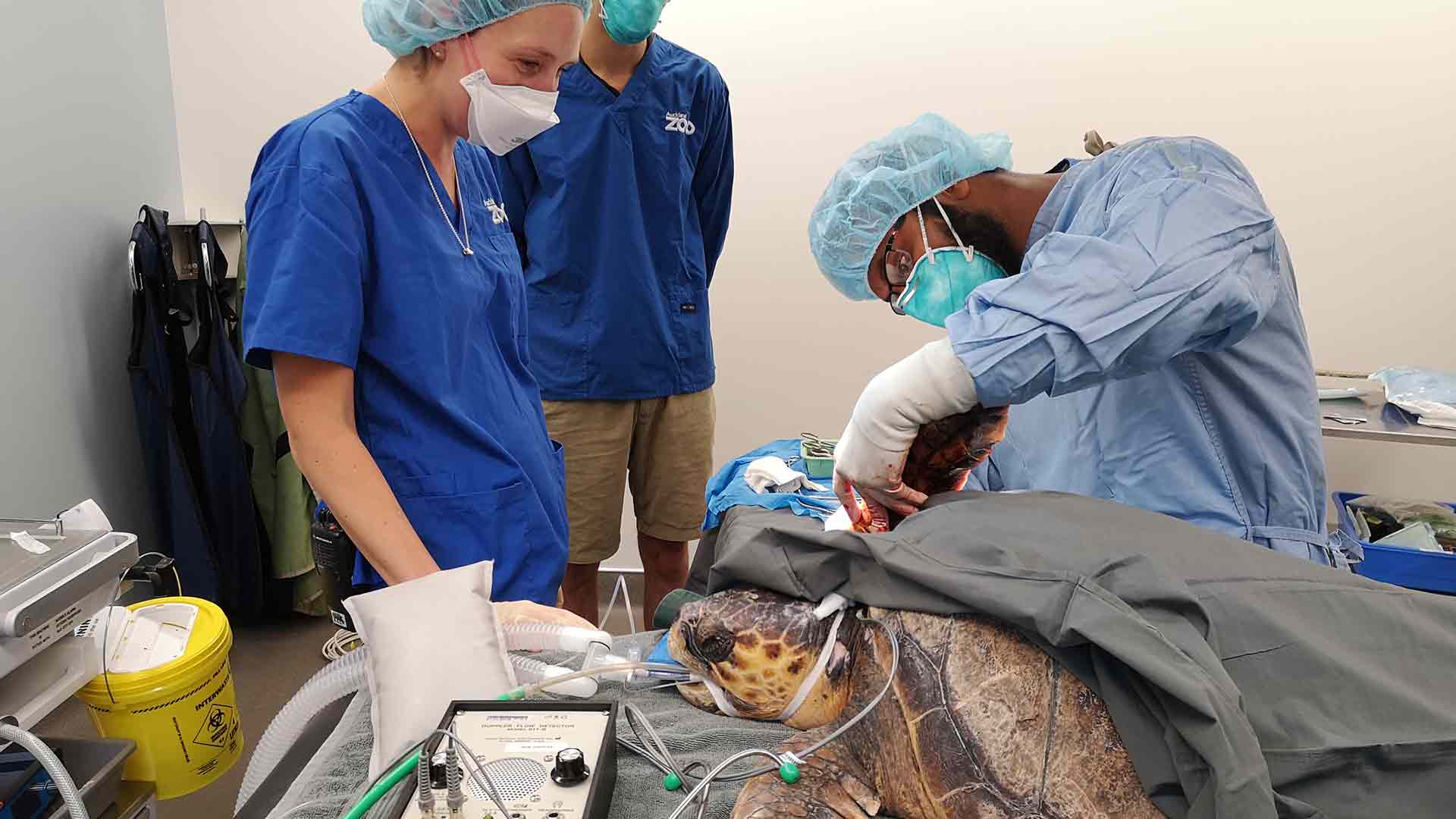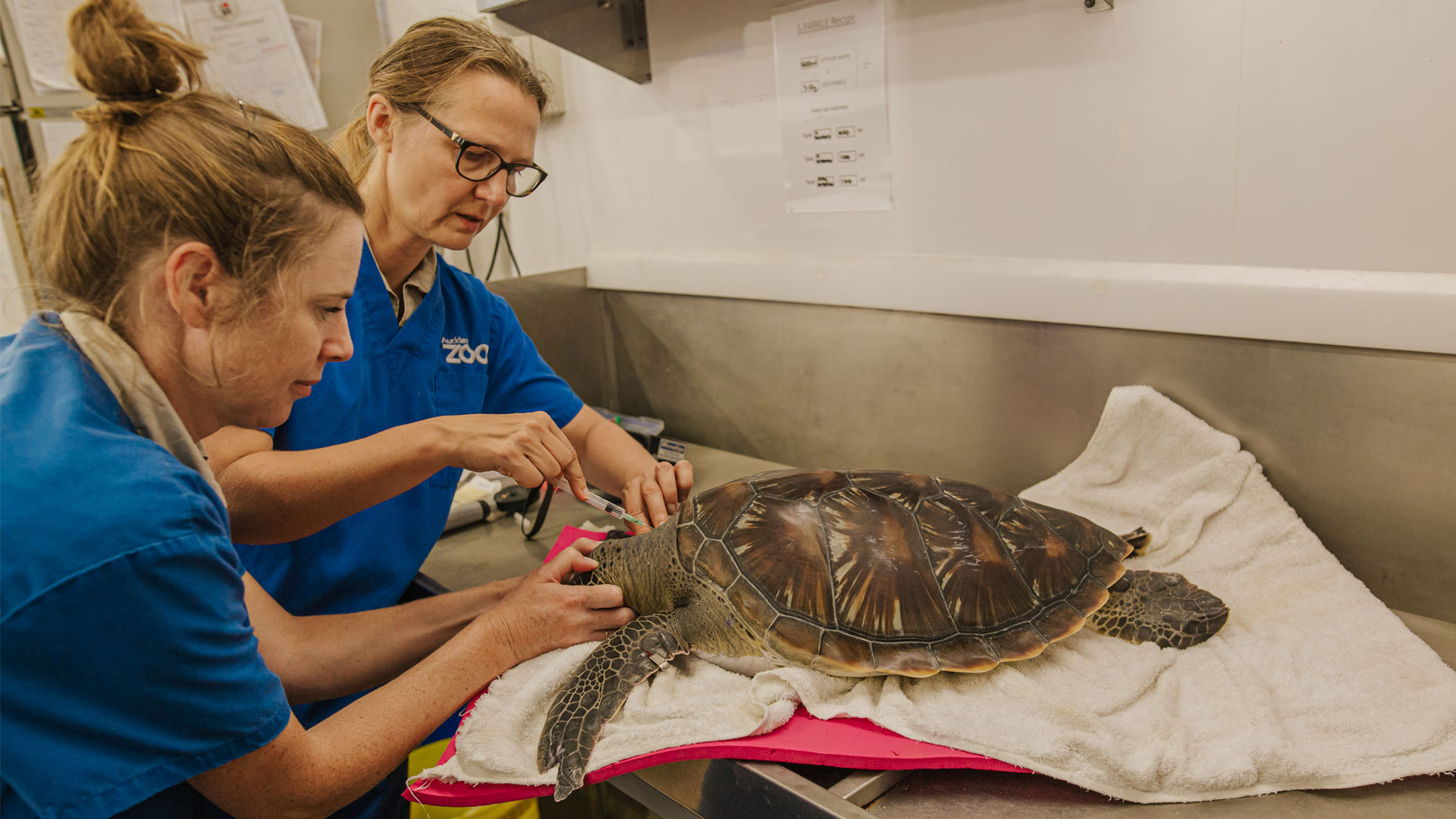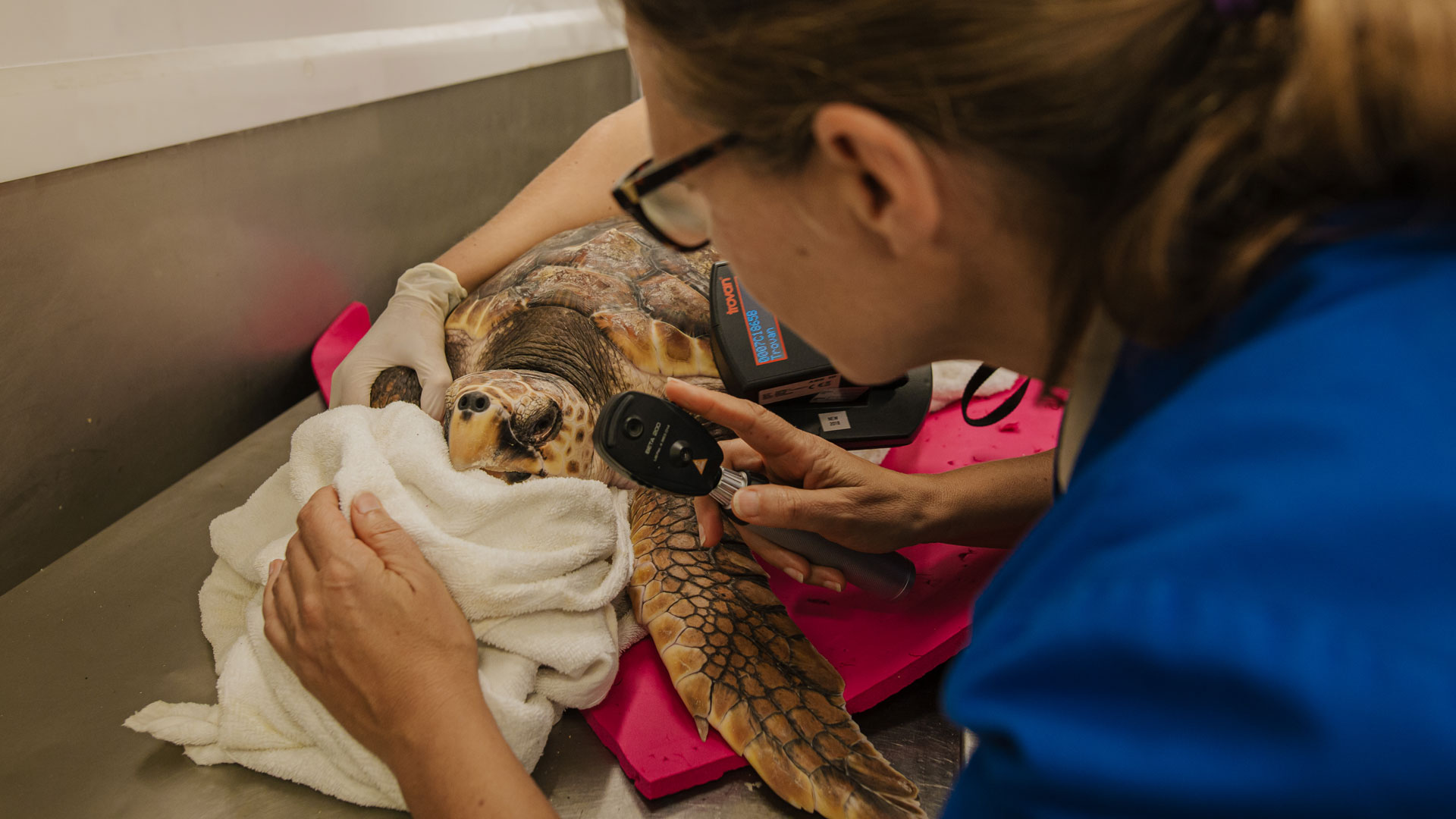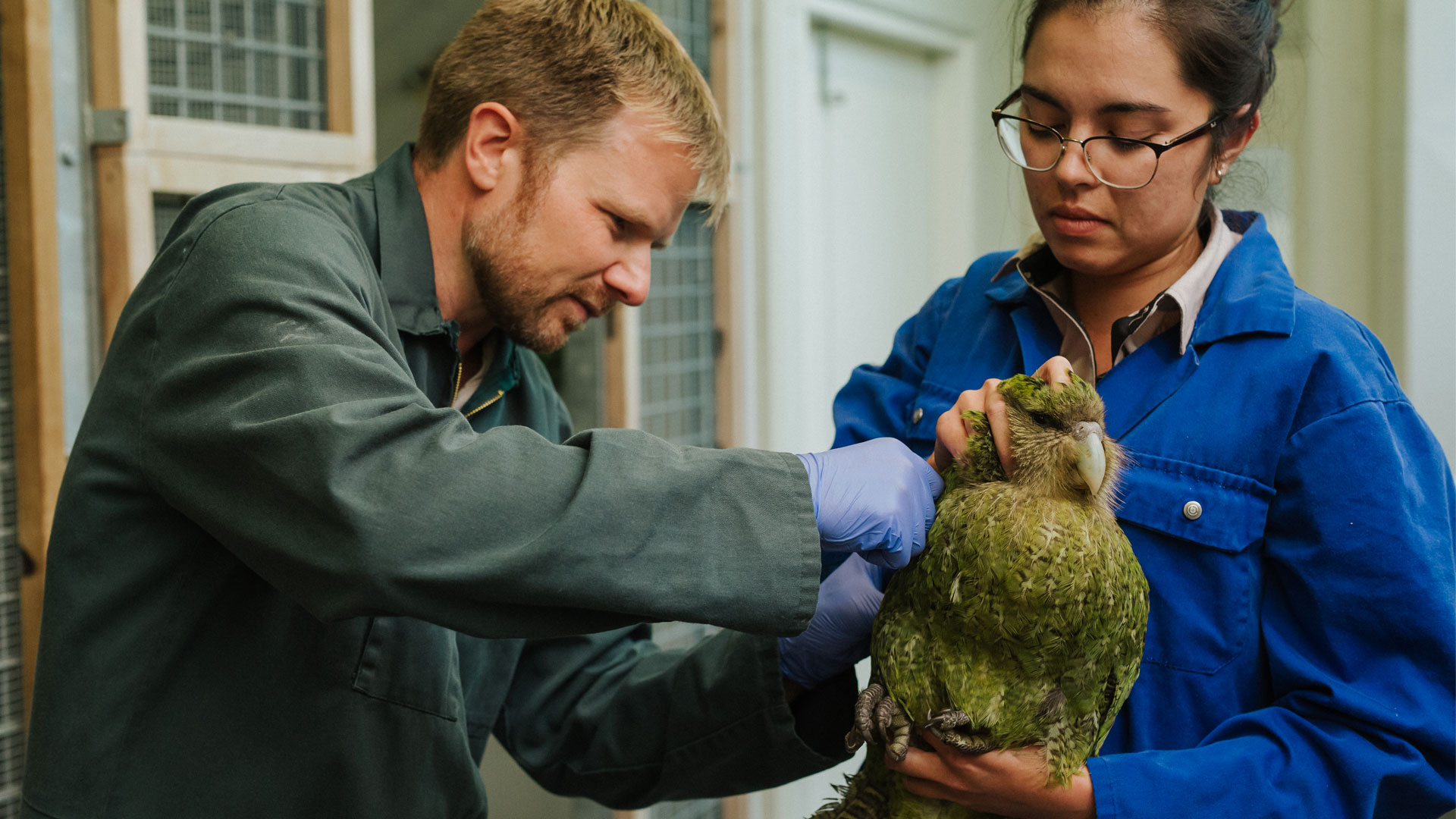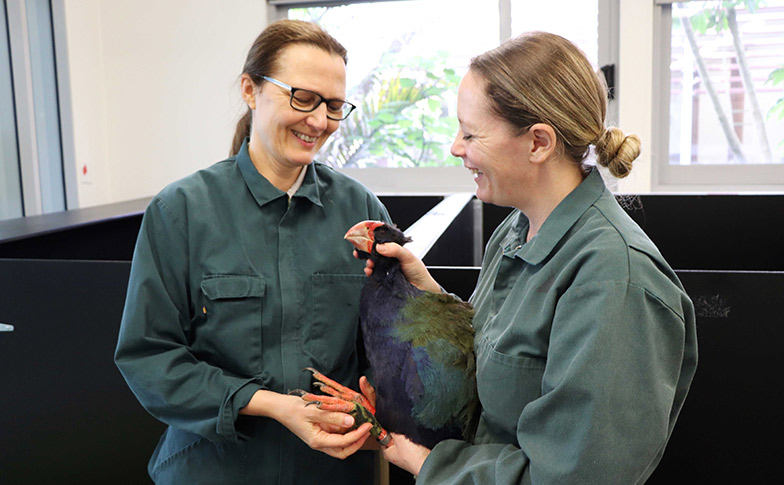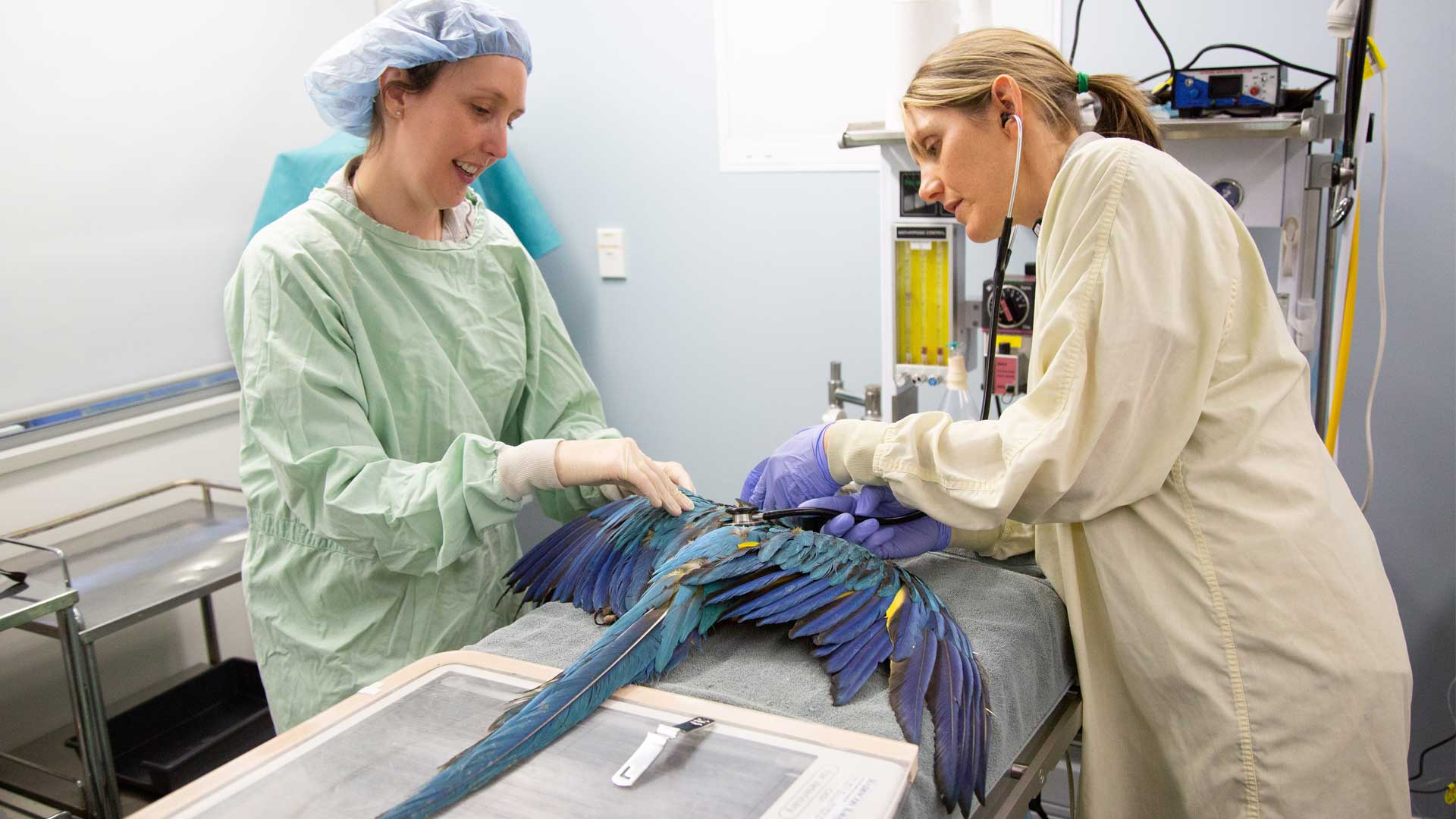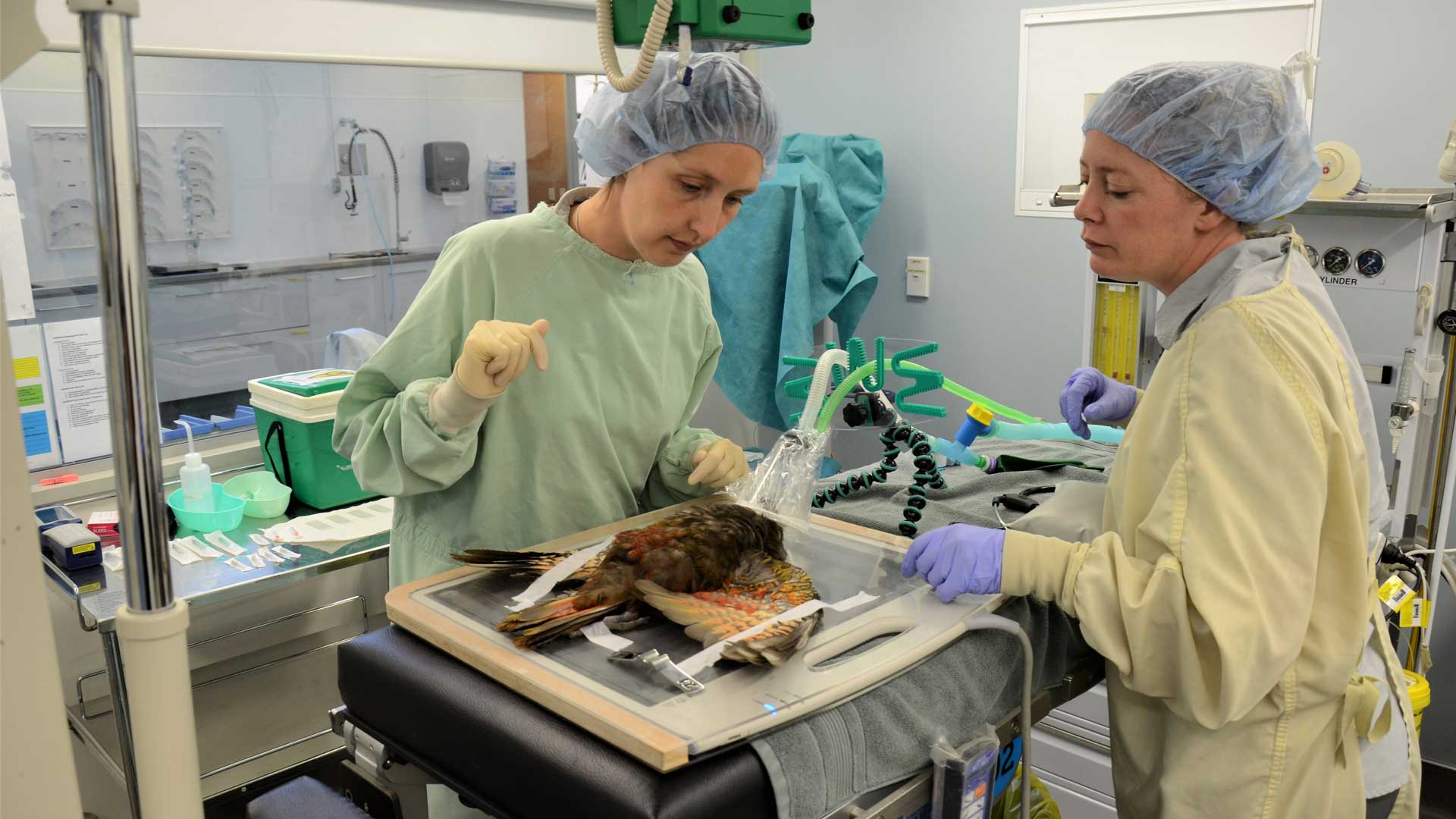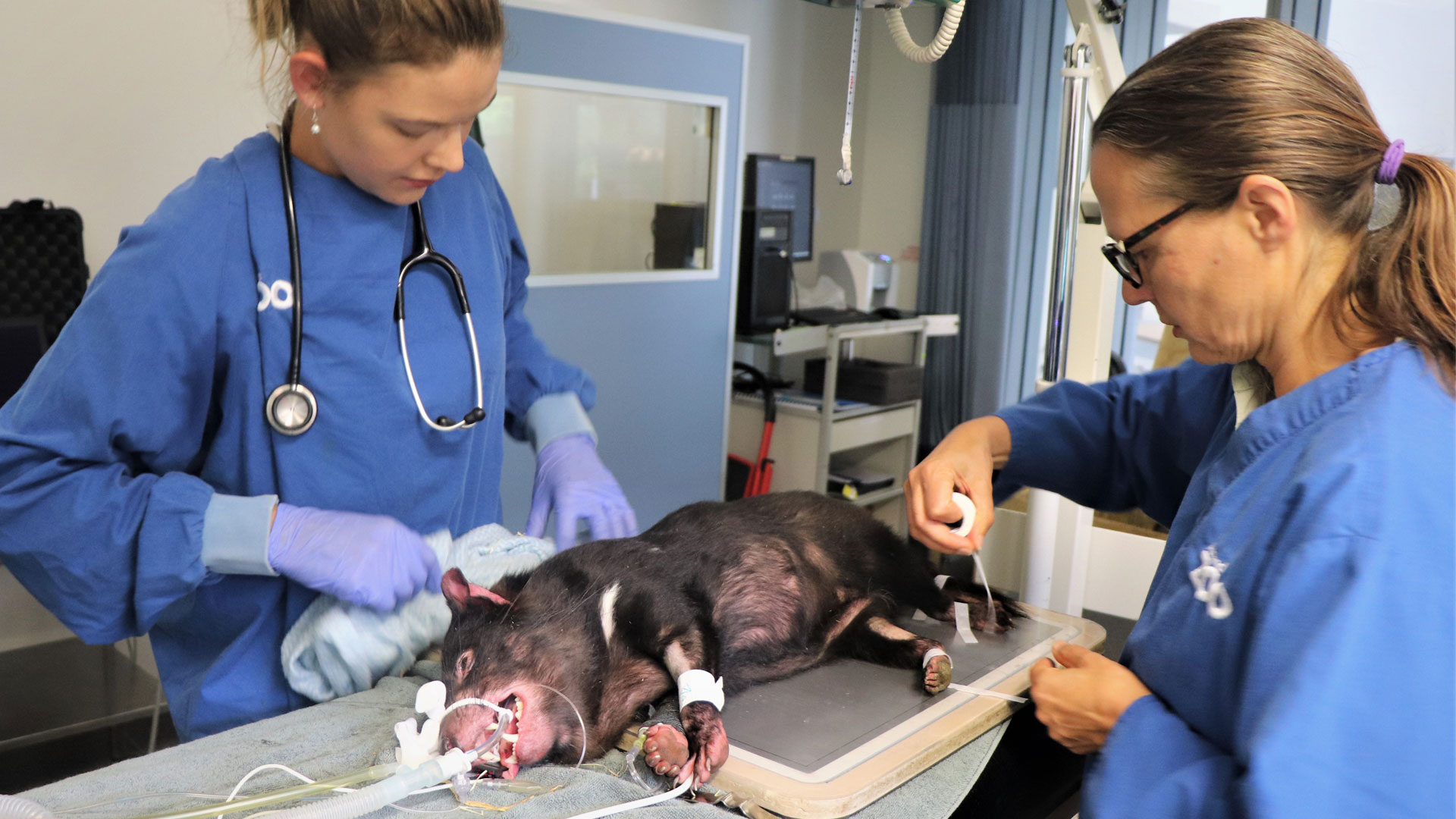The theme for #WVDA2021 is the ‘veterinarian response to the Covid-19 crisis’, detailing the ways veterinarians have had to quickly evolve and adapt in response to the global pandemic. As our senior vet Dr An Pas explains, Auckland Zoo was already in good standing from the outset as many of the precautions that are needed to prevent the spread of Covid-19 were already in place, such as stringent hand hygiene measures.
Following the ‘One Health’ approach to conservation medicine, our zoo vet team work on the premise that animal, human and environmental health are all interconnected. While the Western viewpoint often sees human health set apart from our wider environment, our vets believe that taking care of animals and nature, cannot be separated from human health and wellbeing. Covid-19 is an example of what can happen if we don’t respect this interconnectedness.
From initial reports from the scientific community, our vets were aware we needed to be extra vigilant when caring for our primate and carnivore species, due to their greater risk of contracting Covid-19 from humans. Whether the zoo was closed or open to visitors, our animal care and conservation ‘essential workers’ had strict protocols to follow, that included mask and glove use when working with these species. Each department was divided into smaller teams which meant that, in the unfortunate event that one of the teams was affected by Covid-19, the unaffected team could continue the much-needed care of our animals.


